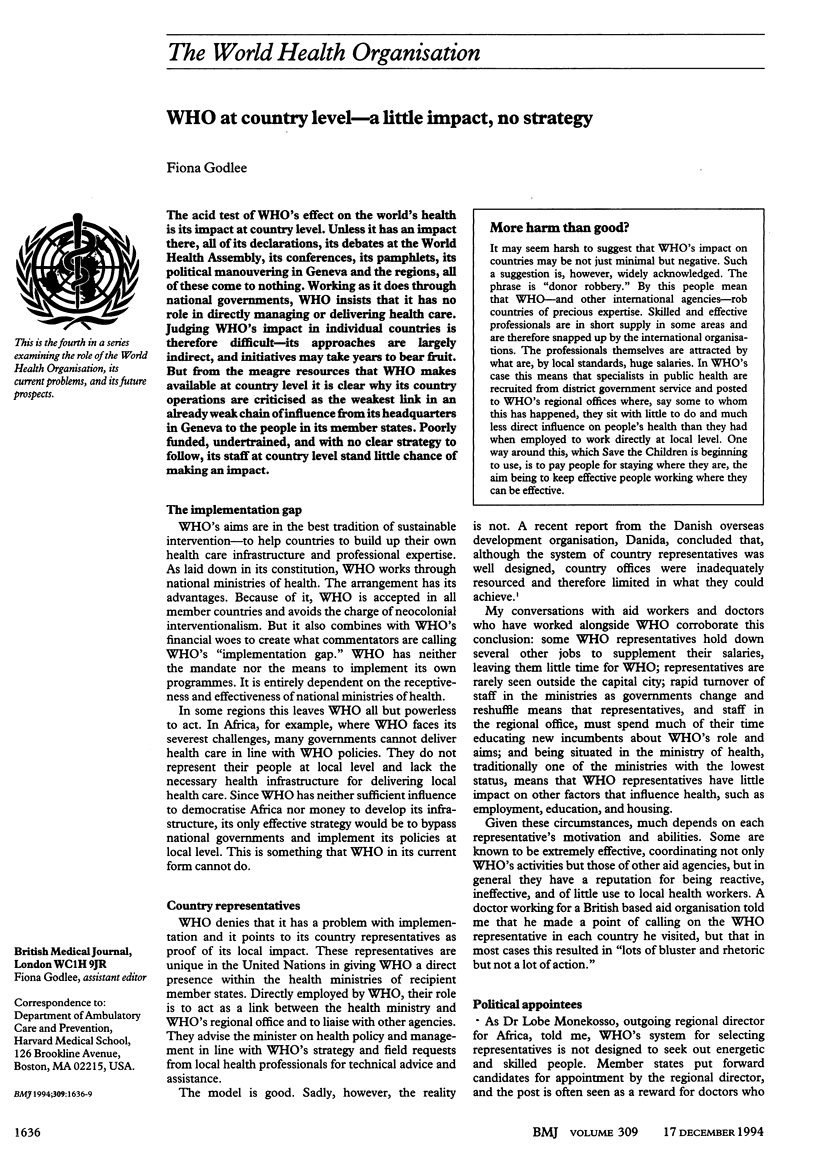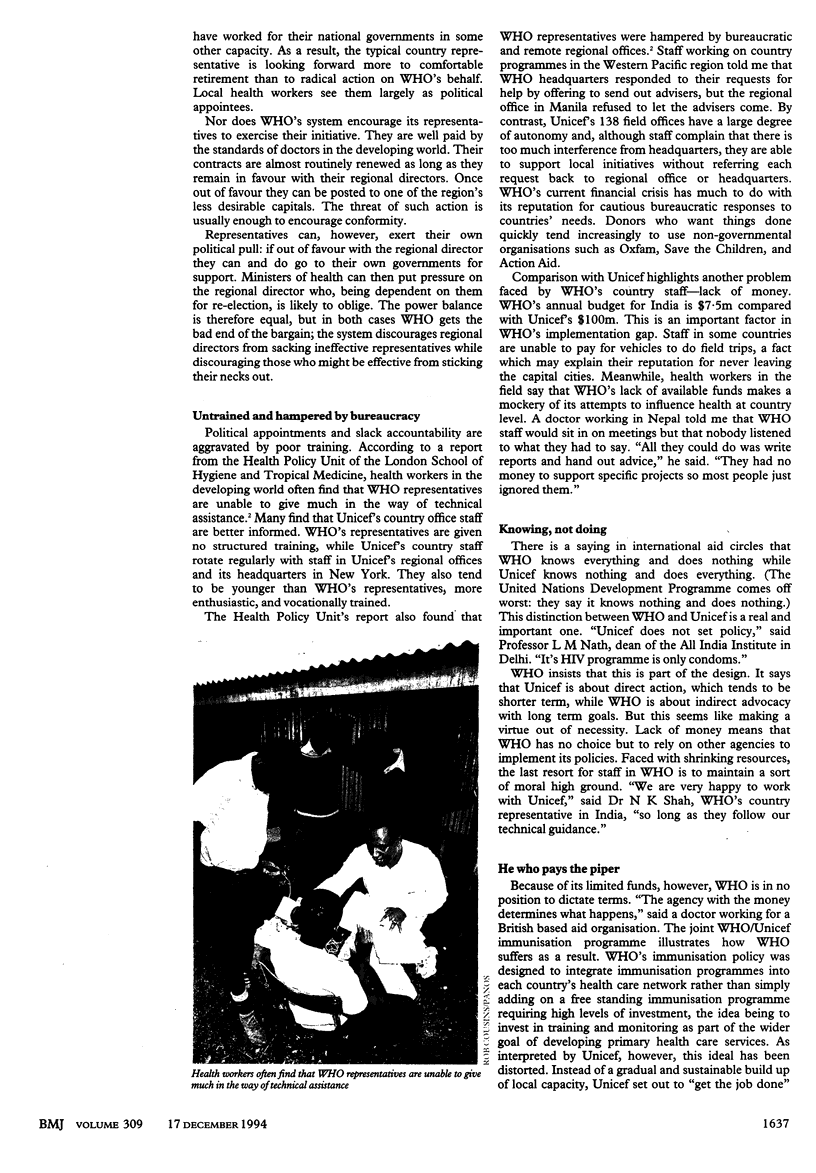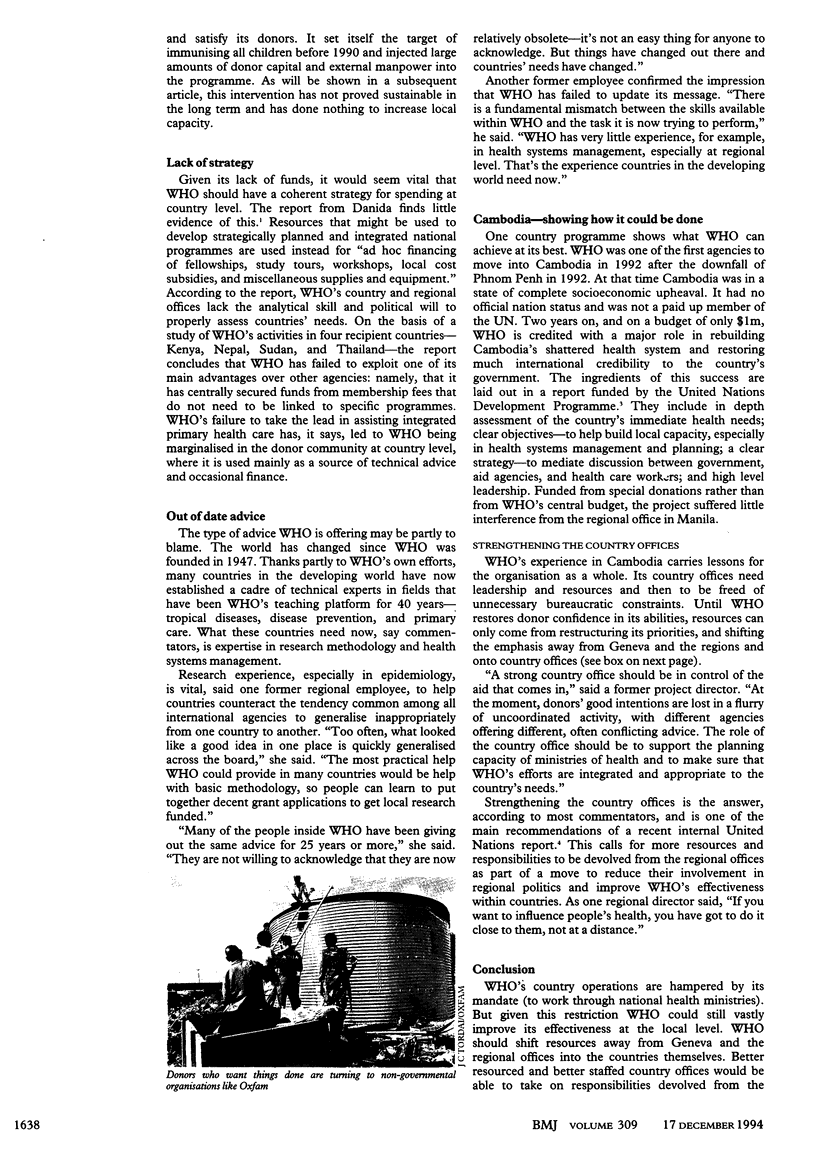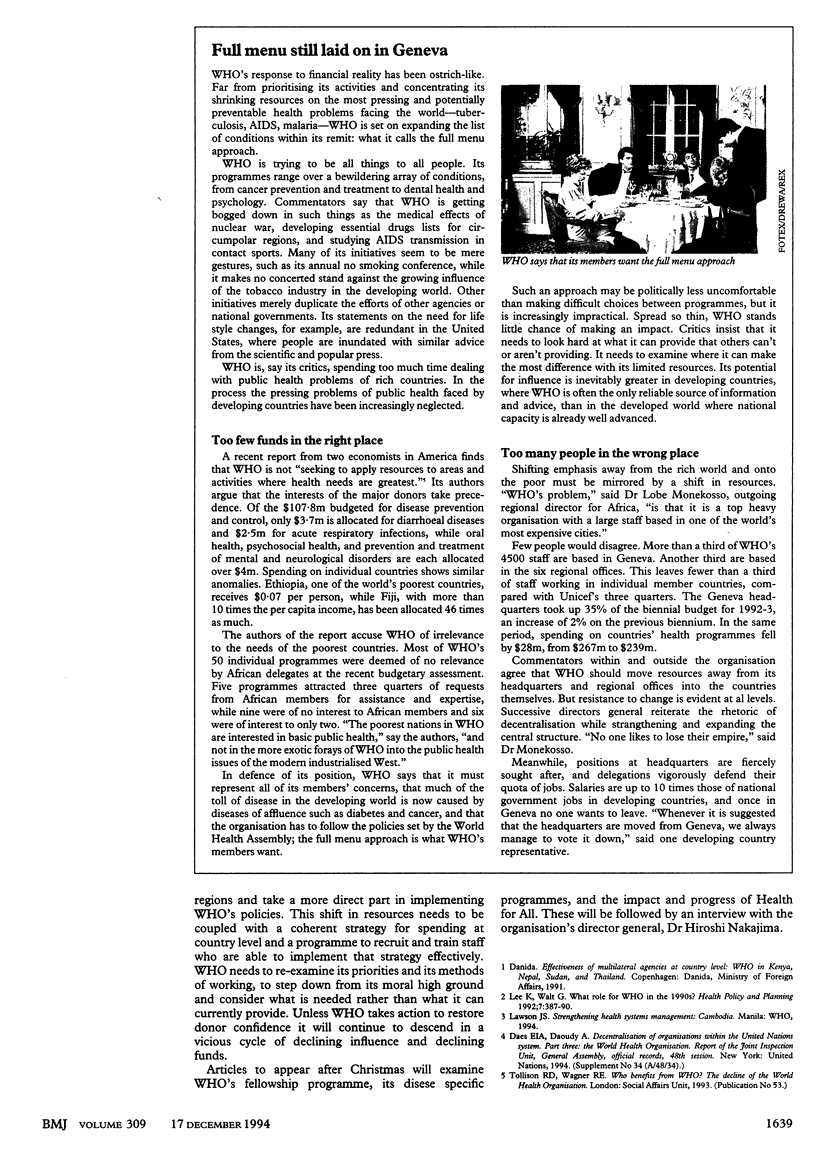Abstract
The acid test of WHO's effect on the world's health is its impact at country level. Unless it has an impact there, all of its declarations, its debates at the World Health Assembly, its conferences, its pamphlets, its political manouvering in Geneva and the regions, all of these come to nothing. Working as it does through national governments, WHO insists that it has no role in directly managing or delivering health care. Judging WHO's impact in individual countries is therefore difficult--its approaches are largely indirect, and initiatives may take years to bear fruit. But from the meagre resources that WHO makes available at country level it is clear why its country operations are criticised as the weakest link in an already weak chain of influence from its headquarters in Geneva to the people in its member states. Poorly funded, undertrained, and with no clear strategy to follow, its staff at country level stand little chance of making an impact.
Full text
PDF



Images in this article
Selected References
These references are in PubMed. This may not be the complete list of references from this article.
- Lee K., Walt G. What role for WHO in the 1990s? Health Policy Plan. 1992 Dec;7(4):387–390. doi: 10.1093/heapol/7.4.387. [DOI] [PubMed] [Google Scholar]





